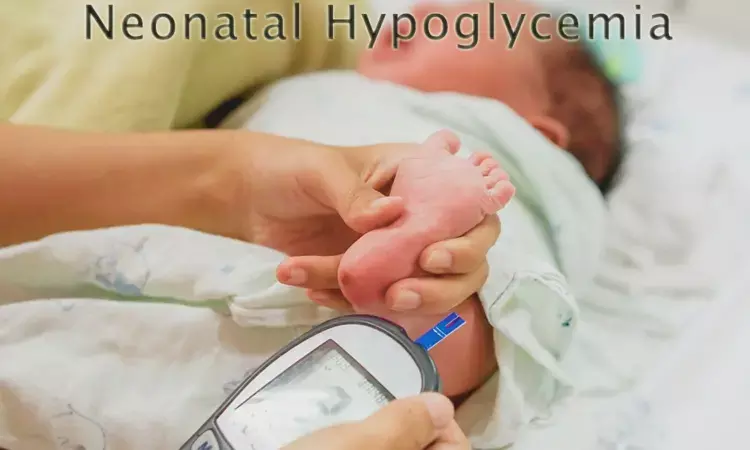- Home
- Medical news & Guidelines
- Anesthesiology
- Cardiology and CTVS
- Critical Care
- Dentistry
- Dermatology
- Diabetes and Endocrinology
- ENT
- Gastroenterology
- Medicine
- Nephrology
- Neurology
- Obstretics-Gynaecology
- Oncology
- Ophthalmology
- Orthopaedics
- Pediatrics-Neonatology
- Psychiatry
- Pulmonology
- Radiology
- Surgery
- Urology
- Laboratory Medicine
- Diet
- Nursing
- Paramedical
- Physiotherapy
- Health news
- Fact Check
- Bone Health Fact Check
- Brain Health Fact Check
- Cancer Related Fact Check
- Child Care Fact Check
- Dental and oral health fact check
- Diabetes and metabolic health fact check
- Diet and Nutrition Fact Check
- Eye and ENT Care Fact Check
- Fitness fact check
- Gut health fact check
- Heart health fact check
- Kidney health fact check
- Medical education fact check
- Men's health fact check
- Respiratory fact check
- Skin and hair care fact check
- Vaccine and Immunization fact check
- Women's health fact check
- AYUSH
- State News
- Andaman and Nicobar Islands
- Andhra Pradesh
- Arunachal Pradesh
- Assam
- Bihar
- Chandigarh
- Chattisgarh
- Dadra and Nagar Haveli
- Daman and Diu
- Delhi
- Goa
- Gujarat
- Haryana
- Himachal Pradesh
- Jammu & Kashmir
- Jharkhand
- Karnataka
- Kerala
- Ladakh
- Lakshadweep
- Madhya Pradesh
- Maharashtra
- Manipur
- Meghalaya
- Mizoram
- Nagaland
- Odisha
- Puducherry
- Punjab
- Rajasthan
- Sikkim
- Tamil Nadu
- Telangana
- Tripura
- Uttar Pradesh
- Uttrakhand
- West Bengal
- Medical Education
- Industry
Gestational Glucose Intolerance Increases Risk of Neonatal Hypoglycemia, Study Finds

USA: Neonatal hypoglycemia, a condition characterized by low blood sugar levels in newborns, has long been a concern for healthcare professionals due to its potential impact on infant health. A recent study published in Diabetes Care has shed new light on a significant risk factor for this condition: gestational glucose intolerance in mothers.
The study revealed that gestational glucose intolerance is associated with an increased neonatal hypoglycemia risk.
In a decade-long study comprising over 8,000 mother-infant pairs, researchers found that infants born to mothers with deviations in glucose tolerance categorized as GGI-0 or GGI-1 faced higher odds of neonatal hypoglycemia.
"This risk was 1.28 & 1.58 times higher, respectively, compared to those born to mothers with normal glucose tolerance. Offspring of mothers with gestational diabetes mellitus (GDM) faced a staggering 4.90-fold increase in odds," the researchers reported.
Sarbattama Sen, Harvard Medical School, Boston, MA, and colleagues aimed to investigate the relationship between gestational glucose intolerance and neonatal hypoglycemia.
For this purpose, the research team conducted a secondary analysis of 8,262 mother-infant dyads, with delivery at two hospitals between 2014 and 2023. Maternal glycemic status was categorized as normal glucose tolerance (NGT), GGI, or gestational diabetes mellitus.
NGT was defined according to a normal glucose load test result, GDM according to an abnormal glucose load test result with two or more abnormal values on the glucose tolerance test, and GGI according to an abnormal glucose load test result with zero (GGI-0) or one (GGI-1) abnormal value on the 100-g oral glucose tolerance test. Neonatal hypoglycemia was defined as per blood glucose <45 mg/dL or ICD-9 or ICD-10 diagnosis of neonatal hypoglycemia.
Logistic regression analysis was used to determine associations between the maternal glucose tolerance category and neonatal hypoglycemia, and a sensitivity analysis was conducted using Δ-adjusted multiple imputations, assuming for unscreened infants a rate of neonatal hypoglycemia was as high as 33%.
The following were the key findings of the study:
- Of infants, 12% had neonatal hypoglycemia.
- In adjusted models, infants born to mothers with GGI-0 had 1.28, GGI-1 1.58, and GDM 4.90 times higher odds of neonatal hypoglycemia in comparison with infants born to mothers with NGT.
- Associations in sensitivity analyses were consistent with the primary analysis.
"Future research should include investigating these associations in a cohort with a complete neonatal blood glucose ascertainment and determining the clinical significance of these findings on long-term child health," the researchers wrote.
In conclusion, the study highlights the importance of recognizing gestational glucose intolerance as a risk factor for neonatal hypoglycemia and underscores the need for proactive screening and management strategies during pregnancy. By addressing this risk factor early, healthcare providers can help safeguard the well-being and health of mothers and infants.
Reference:
Andrews C, Maya J, Schulte CCM, Hsu S, Thaweethai T, James KE, Halperin J, Powe CE, Sen S. Risk of Neonatal Hypoglycemia in Infants of Mothers With Gestational Glucose Intolerance. Diabetes Care. 2024 May 24:dc232239. doi: 10.2337/dc23-2239. Epub ahead of print. PMID: 38787410.
Dr Kamal Kant Kohli-MBBS, DTCD- a chest specialist with more than 30 years of practice and a flair for writing clinical articles, Dr Kamal Kant Kohli joined Medical Dialogues as a Chief Editor of Medical News. Besides writing articles, as an editor, he proofreads and verifies all the medical content published on Medical Dialogues including those coming from journals, studies,medical conferences,guidelines etc. Email: drkohli@medicaldialogues.in. Contact no. 011-43720751


